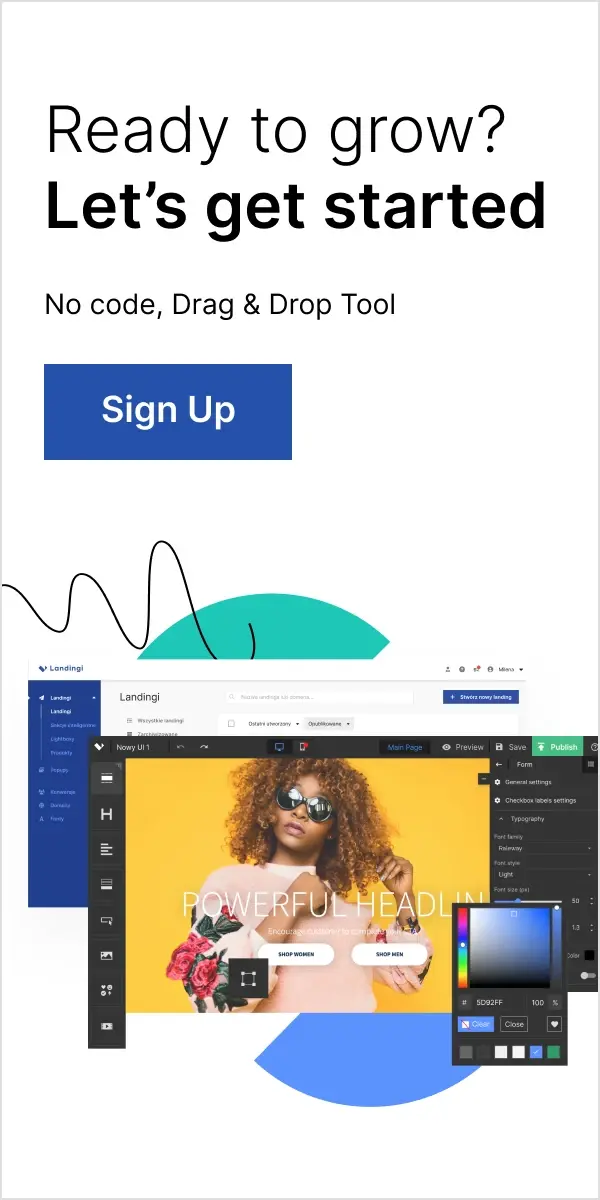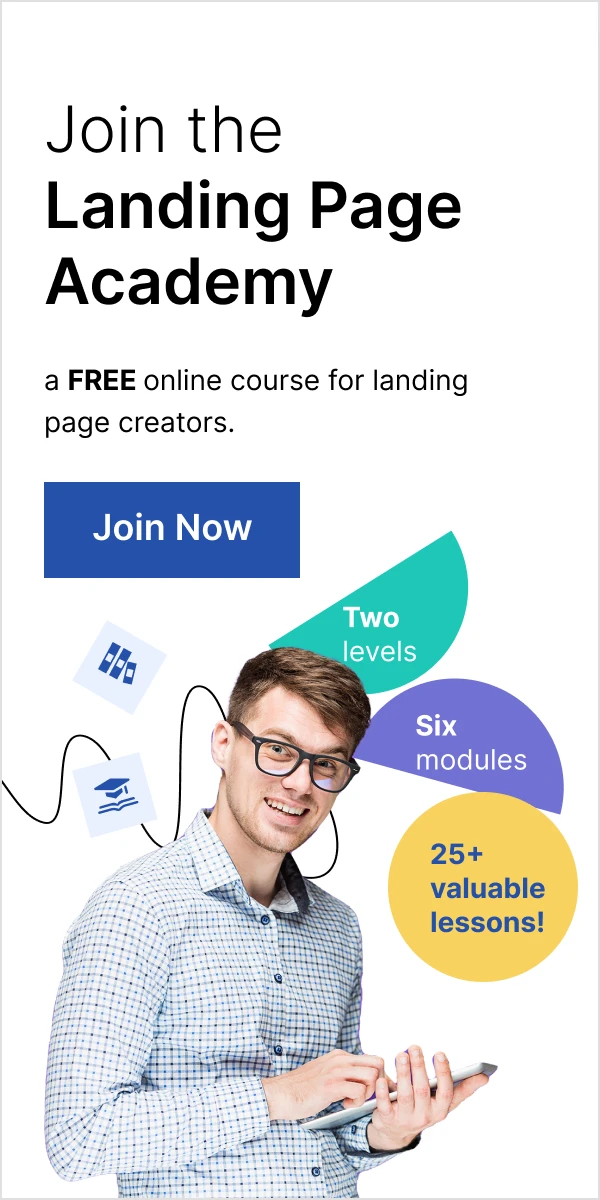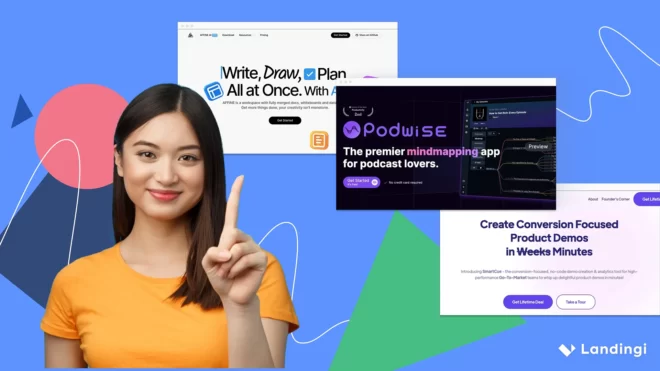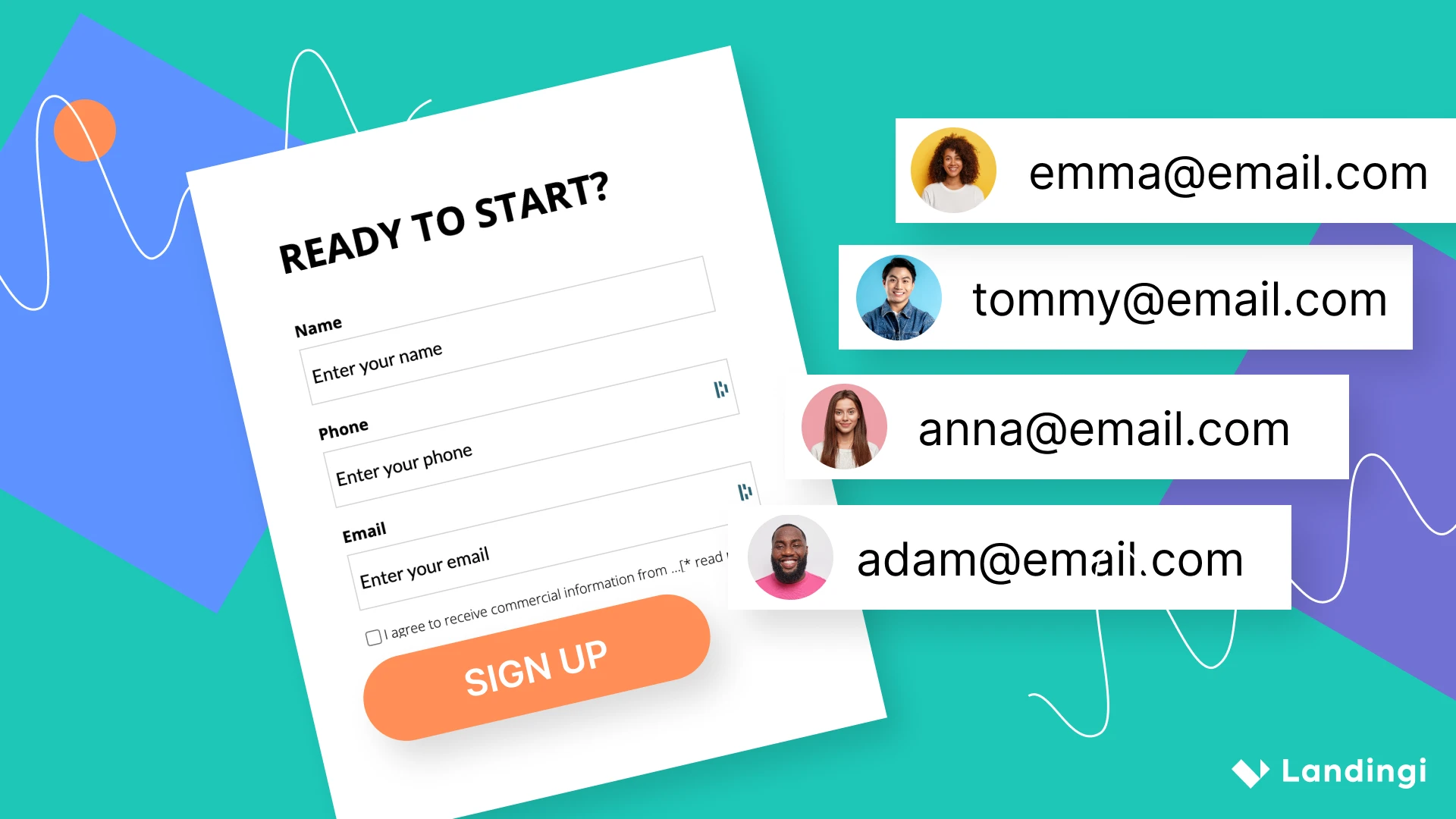Are you planning to steer your career toward becoming a conversion optimization specialist? Your goal is clear: optimize for impact.
As for the newest statistics, a mere 22% of businesses are satisfied with their conversion rates, as said by WebFX, and only a fraction of companies, precisely 39.6%, have a documented strategy for Conversion Rate Optimization (CRO), relying on Ivesp reports. It means there is still a vast space for conversion optimization specialists’ work.
This article explains how to become an expert in digital marketing. Step by step, we’ll go through the exact skills, tools, and strategies you need to improve user experiences and maximize conversion rates. You’ll learn everything from basic techniques to more advanced methods.
Make your sections smartable and let go of mundane manual tasks with Smart Sections! An easy way to manage bulk changes.
What Does a Conversion Optimization Specialist Do?
A conversion optimization specialist drives digital change by exploring where data analysis, user behavior, and digital marketing meets. Their duties include improving website conversion rates, turning visitors into customers with deep expertise. They run analytics audits, track user behavior, and make A/B testing for different website elements to optimize the user experience.
They use a range of cutting-edge tools like Landingi – a landing page builder with built-in features from A/B test tool to EventTracker, which allows them to inform conversion optimization strategies and achieve impressive results. But it’s not just about the tools. It’s about being a good CRO specialist who understands user behavior, identifies conversion hurdles, and makes data-driven decisions to optimize user experience and, ultimately, drive business success.
The main areas of a conversion optimization specialist job are the following:
Research and Data Analysis
Analytical skills are necessary to elevate conversion rates. CRO specialists dive into stimulating projects, conducting qualitative and quantitative research. They delve deep into user behavior and identify pain points or obstacles that hinder conversion rates. Through this intricate process, they uncover valuable insights that drive impactful changes.
Equipped with trusted web analytics tools like Google Analytics, Adobe Analytics, or multifunctional digital marketing platforms, they embrace a data-driven approach. They analyze user behavior, conversion funnels, and other relevant metrics to spot patterns, trends, and optimization opportunities. Utilizing user behavior tracking is like being a detective, using data to solve the mystery of what makes users click.
Testing and Optimization
After completing the research phase, a conversion rate optimization expert moves into the exciting world of trying out different methods and making improvements achieve the best results of a marketing strategy. They design and execute various tests and optimization techniques, including:
- A/B tests, comparing different versions of web pages or marketing materials to find the best options for increasing conversion rates;
- User journey analysis, examining the path users take on a website to identify areas for improvement;
- Usability tests, gathering user feedback to evaluate the ease of use and effectiveness of a website or product.
These techniques help CRO specialists optimize websites and marketing materials by implementing data-driven insights for better results.
Implementation and Monitoring
A CRO specialist’s responsibilities include the following:
- Testing
- Implementation
- Monitoring
- Sharing learnings with the team
- Continuously iterating on tests and optimizations
In the field of optimizing conversion rates, the right tools can make a significant difference. Google Analytics sits at the top of the list as the most famous tool used by any conversion specialist worldwide. It offers comprehensive insights into user behavior, traffic patterns, and other crucial metrics that help identify opportunities for optimization.
However, the tool that stands out for its unique features is Landingi. Landingi is not just a landing page builder but a powerful tool that enables a deeper understanding of user behavior and allows interpreting data quickly. Its built-in features, including A/B testing tools, provide a solid platform for data-driven decisions, making it an indispensable tool for any CRO specialist.

In the phase of sharing insights, communication is vital. Using a clear framework, visual aids, and storytelling techniques, CRO specialists engage their team in the results and gather valuable feedback for continuous improvement.
What Skills do you Need to be a Conversion Rate Optimization Specialist?
As a CRO specialist, you need the right skills, including solid analytics abilities, strategic thinking, and soft skills, in addition to technical ones. A conversion specialist’s role is multifaceted and requires a combination of different skills. Hence, a solid foundation in data analysis is crucial, enabling them to gain valuable insights from qualitative and quantitative data, understand user behavior, and make data-driven decisions that enhance user experiences. But it’s not all about the numbers. Proficiency in copywriting is another essential skill, enabling them to craft compelling content that inspires website visitors to take desired actions.
Moreover, a CRO specialist needs to be well-versed in:
- UX design, which equips them to optimize crucial areas that drive website conversions,
- Psychology, for understanding user behavior patterns,
- Project management, efficiently leading CRO projects from start to finish.
The diverse skill set required for CRO specialists makes the ‘M-shaped Marketer’ concept powerful, distinguishing them as all-around experts capable of driving significant conversion growth.

What are Conversion Optimization Specialist Requirements?
The conversion optimization specialist’s requirements typically include technical skills, analytical abilities, and marketing knowledge. A solid understanding of digital analytics and user behavior is a prerequisite for becoming a CRO specialist. The most frequently appearing requirements for the CRO position are the following:
- Understanding of digital marketing fundamentals
- Data analysis and interpretation skills
- A/B testing and experimentation
- User experience (UX) and user interface (UI) knowledge
- Technical and coding skills
- Psychology and persuasion principles
- Copywriting skills
- Project management and collaboration
- Continuous learning
These skills provide valuable insights and data that can be used to identify areas for improvement, track the effectiveness of optimization efforts, and make data-driven decisions to enhance a website’s conversion rate.
In addition to analytics, a deep understanding of testing methodologies is crucial for designing, executing, and analyzing tests to optimize conversion rates. A detail-oriented attitude is definitely desired for any CRO position. Landing page optimization is another critical skill that refers to implementing strategic changes to enhance user experience and boost conversion rates.
Furthermore, to drive impactful results in optimization efforts, it is a must to have basic coding skills in JavaScript, JQuery, HTML, and CSS. Lastly, strategic thinking and planning are critical to overcoming the challenges of CRO and creating impactful, scalable strategies.
How Do I Learn To Become Conversion Rate Optimization Specialist?
To become a CRO specialist, start your journey by completing relevant educational courses and certification in the field. This will provide a solid foundation for your transition into a CRO specialist role. There are several certifications you could aim for, such as:
- Conversion Optimization Certification Training (CXL)
- Advanced Website CRO Certification Training (Simplilearn)
- The Complete Conversion Rate Optimization Course (Udemy)

Even though university studies can give you solid basics to become an expert in digital marketing, to be a real specialist, you need to continue learning in the specific area of your choice. You can participate in online courses offered by multiple platforms and institutions. Remember to pick up these courses that provide certifications so you can make use of papers when looking for a future job.
Once you’ve got the theoretical knowledge, it’s time to implement it. Look for internships tailored specifically for those who want to excel in conversion rate optimization. This will give you practical skills and hands-on experience. Websites like Indeed.com, Conversion Rate Experts, and NPAccel offer specific internships designed for aspiring CRO specialists.
6 Steps To Become a CRO Specialist
To become a CRO specialist, start by gaining knowledge and developing technical skills, and follow the instructions of the 6 steps:
- Acquire foundational knowledge
- Develop technical skills
- Gain practical experience
- Network with professionals
- Stay updated with industry trends
- Showcase your expertise
Let’s walk through the 6 crucial steps on your path to becoming a successful CRO specialist.
Step 1. Acquire Foundational Knowledge
Firstly, as you want to start on the path to becoming a CRO specialist, begin with gaining knowledge background in the following areas:
- Digital Marketing: Mastering optimization tools and strategies, understanding web analytics, and learning the basics of coding and landing page creation. Resources like Google Digital Garage, blogs, online courses, and other educational materials can enrich digital marketing knowledge.
- UX Design: Understanding the principles of design and how they can be applied to create user-friendly interfaces. This can significantly impact conversions by improving the user experience and making it easier for visitors to become customers. Conducting user research is essential in this process.
- Psychology: Understanding psychological principles is vital as they provide insights into customer behaviors and motivations, which drive conversion rates. Studying how people think, feel, and behave and applying this knowledge to your marketing strategies can help you craft messages that resonate with your audience and motivate them to take action.
Even though you have gained some basic knowledge already, it’s crucial to remember that learning shouldn’t stop here. In a rapidly changing world of digital marketing, it’s essential to keep your knowledge up-to-date and constantly seek new learning opportunities. This will ensure that you stay ahead of the curve and are always equipped with the latest strategies and tools to optimize conversions.
Step 2. Develop Technical Skills
The next step involves perfecting technical skills, specifically in the following:
- Data analysis,
- Testing methodologies,
- Analytical thinking,
- Web analytics,
- A/B testing,
- Coding basics,
- Landing page creation.
Next to the testing methodologies, including understanding A/B testing, multivariate testing, user testing, session replays, and heat mapping, which are crucial for a successful CRO, copywriting is another critical skill. It influences user decisions, drives them towards desired actions, and boosts conversion rates.
Get 111 Landing Page Examples—The Ultimate Guide for FREE
Step 3. Gain Practical Experience
The third step is solidifying your knowledge base and technical skills by seeking practical experience. This is where internships, freelance projects, or personal projects come into play. Working on freelance projects can give you hands-on experience in conversion rate optimization. You can learn by doing and applying your skills in real-world situations.
There are several platforms where you can find freelance projects in CRO, such as Upwork and Fiverr. Alternatively, you can work on personal projects, such as optimizing website elements, improving user experience, and developing better CTAs.
Practical experience is critical for a few reasons:
- Firstly, it allows you to apply the theoretical knowledge you’ve gained in a real-world context. This exposes you to the challenges and complexities that come with implementing conversion rate optimization strategies in practice.
- Secondly, practical experience provides an opportunity to develop your problem-solving skills. You will unavoidably face challenges and obstacles throughout your projects, and navigating these is a crucial part of becoming a proficient CRO specialist.
- Lastly, gaining practical experience can also be a great way to build your portfolio. The projects you work on can serve as specific examples of your skills and capabilities, which can be a powerful tool when applying for jobs or pitching to clients in the future.
Step 4. Network with Professionals
For the fourth step, you should establish connections with professionals in the CRO field. This can be done by the following:
- Joining online communities,
- Sharing your expertise,
- Connecting with other CRO professionals,
- Actively contributing to discussions.
Networking not only expands your knowledge but also opens doors to new opportunities. You can attend networking events tailored for CRO specialists, like CXL Live, Conversion Fanatics, and Convert.com’s CRO events calendar.
Moreover, you can leverage online platforms for networking and professional growth, such as LinkedIn Groups.
Step 5. Stay Updated with Industry Trends
In the fifth step, maintaining awareness of industry trends, tools, and best practices is critical. This can be achieved through following blogs or podcasts and participating in online communities.
Blogs like Conversion Rate Experts or Conversion Sciences provide valuable insights and case studies on conversion rate optimization. On the other hand, online communities on several platforms can be an excellent source for gaining knowledge and finding out news in the field, with one more advantage – you can share insights and discuss them with other specialists.

Step 6. Showcase your Expertise
The last step in your journey to becoming a CRO specialist involves demonstrating your expertise through a portfolio or case studies of successful CRO projects. This provides physical evidence of your skills and the successful outcomes of your CRO projects.
You can showcase impressive CRO projects in your portfolio, such as a pricing page redesign or the implementation of a unique approach that had a significant impact on conversion rates.
Remember, when sharing your case studies, use a clear framework, visual aids, and storytelling techniques to communicate your achievements and findings effectively.
What Is the Salary of a Conversion Rate Optimization Specialist?
Conversion rate optimization specialists can earn an average annual salary ranging from 55,794 to 82,000 USD in the United States, according to SalaryExpert reports. While remuneration for specialists at the entry level starts, on average, from 55,794 USD per year, experienced experts can expect an annual salary of up to 107,650 USD, which is nearly 50% more.
If you decide to go freelance, you’re looking at an impressive hourly rate. Freelance CRO specialists usually charge between 85 and 97 USD per hour.
In Europe, the most profitable place for CRO specialists is Denmark, where an average annual salary starts from 382,800 DKK, which is equivalent to about $57,420 USD. Still, experts with 8+ years of experience can expect up to 1,087,200 DKK, which is equivalent to 109,980 USD, according to Glassdoor reports.
Conversion optimization job salary varies among regions and is dependent on experience level. According to global reports, conversion optimization is a rewarding field, both in terms of the impactful work you do and the financial rewards.
Key Takeaways
The role of conversion optimization is to increase the percentage of desired actions taken by users on a website or mobile app, such as making a purchase or signing up for a service. It involves generating ideas for improvement and validating them through testing.
Becoming a successful CRO specialist involves acquiring a unique blend of skills, including the following:
- Analytical and critical thinking,
- Deep understanding of consumer behavior,
- Creativity,
- Strong copywriting and communication skills,
- Business acumen.
Here are also some additional requirements if you’d like to go pro:
- Continuous learning to stay ahead of emerging trends, master best practices, and explore new case studies
- Practical application of your skills through internships or freelance projects, which contribute to digital marketing efforts
- Networking with industry professionals and sharing your expertise in the community
To succeed as a Conversion Optimization Specialist, develop skills in data analysis, copywriting, UX design, and psychology for enhancing website conversions. Gain practical experience, highlight your skills through a portfolio or case studies, and enjoy a career that significantly impacts business growth and offers competitive financial rewards.
In conclusion, it’s an exciting field that provides the opportunity to make a significant impact on a company’s bottom line through data-driven decision-making and strategic changes. So, are you ready to start on this rewarding journey to become a CRO specialist?








